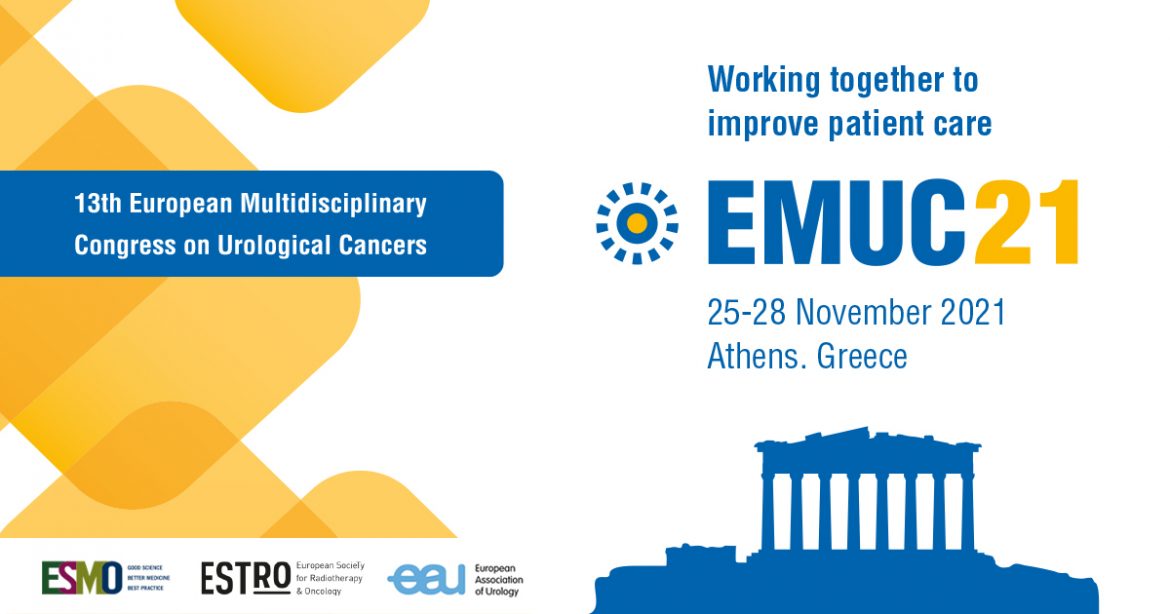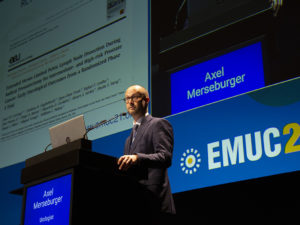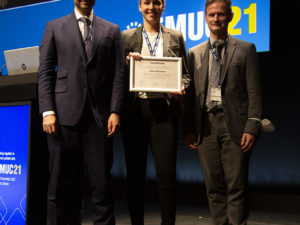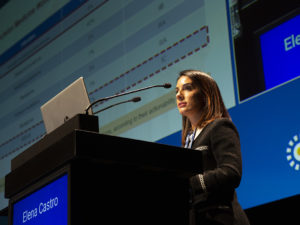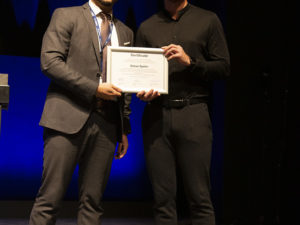New crucial updates in GU cancer prevention, diagnosis and management
Relive and enjoy the congress experience, meet and connect with peers and key opinion leaders face-to-face, and join the knowledge-exchange first-hand at the much-awaited 13th European Multidisciplinary Congress on Urological Cancers (EMUC21). The congress will welcome delegates from around the world from 25 to 28 November 2021 in picturesque and historic Athens.
Through the collaboration of the EAU, the European Society for Medical Oncology (ESMO), and the European SocieTy for Radiotherapy and Oncology (ESTRO), the four-day congress will constitute of new crucial updates in the prevention, diagnosis and management of genito-urinary (GU) cancers.
In this article, highly-regarded experts and EMUC21 Steering Committee members, Prof. Aristotelis Bamias (GR), Prof. Peter Hoskin (GB), and Prof. Arnulf Stenzl (AT) shared what participants can expect at the upcoming congress; from current challenges to anticipated breakthroughs in the field.
New scientific updates in the programme
“EMUC21 will cover a plethora of developments with regard to GU cancers, and emphasise the importance of a multidisciplinary approach when providing the best care to our patients. Interactivity will be encouraged,” stated Prof. Bamias. He added, “Some of the major updates at the congress will include the new WHO classification on GU cancers, modern imaging in prostate cancer, integrating systemic therapy in non-muscle-invasive bladder cancer (NMIBC), and molecular developments in the field.”
Prof. Stenzl further elaborated on what new developments the congress will offer:
- On prostate cancer
The diagnostic and therapeutic possibilities of PSMA-PET-CT based on the most recent data will be thoroughly discussed, particularly stage imaging and therapy (e.g. PSMA-Radio-Ligand- Therapy) with PSMA. - On bladder and urothelial cancers
New developments such as urinary tract topical therapy with a new agent, possible physical enhancement, and more will be presented. - On advanced urothelial cancer
The status of checkpoint-inhibition and emerging data from recent studies will be examined and deliberated. Furthermore, circulating tumour DNA is a new and promising tool. Researchers from Denmark are at the forefront of this technology and will present exciting perspectives. - On renal cell cancer
The role of local or regional therapy, in addition to systemic therapy, will be discussed by a multidisciplinary panel. Moreover, an update on new trials such as FLAME (Focal Lesion Ablative Microboost in prostatE cancer), IMvigor130, CLEAR, and the extent of lymph node dissection in prostate cancer, to name a few will be part of the congress.
Prof. Hoskin stated, “A few lectures will focus on the combination of immunotherapy with local treatment in several GU cancers. Then these lectures will be followed by presentations on personalised approaches in GU cancers wherein experts from various disciplines will offer their insights.”
Major challenges in interdisciplinary approach
“I think we have entered an era characterised by our belief that metastatic GU cancer can be associated with long-term survival without disease progression, and that cure is possible. This is thanks to the close collaboration and involvement of all disciplines, which are represented in EMUC congresses. The major challenge is the optimal utilisation of our diagnostic tools (including molecular markers) in order to personalise our approach and achieve maximum benefit for our patients,” stated Prof. Bamias.
According to Prof. Stenzl, some of the major challenges in the interdisciplinary approach of patient care include communication, knowledge and understanding. He explained, “Advances in one field may not be communicated well to other disciplines involved in patient treatment. Sometimes, the implications of these advancements may not also be well understood by other disciplines, and can lead to misunderstanding. In practice as an example, we still do not know the role of salvage lymphadenectomy in prostate cancer, treatment of oligometastatic urothelial cancer, the extent of salvage tumour resection/nephrectomy in advanced and/or metastatic renal cell cancer. What is important is the understanding of all disciplines in the sequence of the respective possibilities of treatment.”
In the coming decade
“In my opinion, further developments in immunotherapy and technology such as diagnosis, circulating tumour DNA for both diagnosing residual disease after priority treatment, and monitoring of systemic therapy. are on the horizon. These will be a great help for all doctors and patients in the field of uro-oncology,” concluded Prof. Stenzl.
How to join EMUC21
Register now to participate in the upcoming congress here. Delegates are entitled to access to the scientific sessions, industry sessions and the exhibition. For the complete Scientific Programme, please click here.
About ESUI21 The 9th Meeting of the EAU Section of Urological Imaging (ESUI21) will take place on 25 November 2021 in conjunction with EMUC21. Expect extensive assessments of technological applications in image-guided approaches. ESUI21 will also investigate how imaging enhances urological diagnostics and intraoperative visualisation, and helps define the standardisation of the reporting of urological cancers. For more information, please visit www.esui.org.

